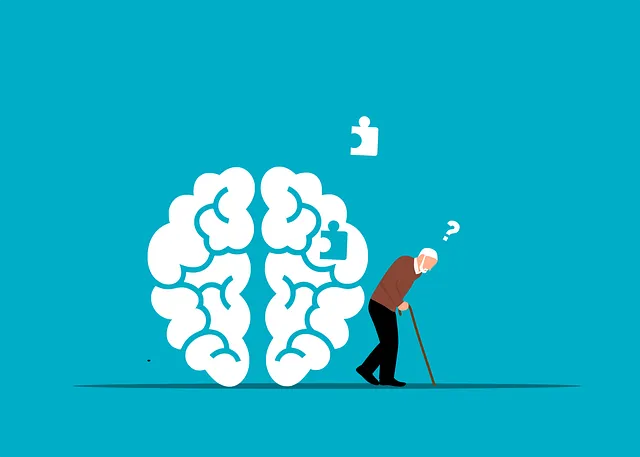The text explores the growing demand for accessible mental wellness solutions in a fast-paced world, highlighting the rise of digital platforms like Mental Wellness apps as powerful alternatives to traditional methods. These apps offer personalized tools for stress management and anxiety relief, incorporating mindfulness exercises and community support. For genuine impact, they must provide tailored experiences, professional support, and promote social connection. Technology has enhanced inpatient mental health care, with digital platforms offering 24/7 access and personalized practices. User-centric design is crucial, addressing individual needs and challenges through intuitive navigation and accessible features. Effective marketing and monetization strategies, combined with a focus on user trust, are essential for the success of mental wellness apps, particularly those competing with established inpatient programs like Kaiser's.
In today’s digital age, mental wellness app development is a game-changer in addressing the growing need for accessible, personalized support. With a focus on user-centric experiences, these apps offer a discrete and convenient way to manage mental health. This article explores the key components that make an effective mental health app, comparing its role with traditional inpatient care models, such as those provided by Lakewood and Kaiser. We delve into successful marketing strategies and provide insights for app developers looking to make a positive impact in this vibrant, evolving landscape.
- Understanding the Growing Need for Mental Wellness Apps
- Key Features and Components of Effective Mental Health Apps
- The Role of Technology in Inpatient Mental Health Care: A Comparison with Kaiser's Model
- Designing User-Centric Experiences for Mental Wellness Apps
- Marketing and Monetization Strategies for Mental Health App Success
Understanding the Growing Need for Mental Wellness Apps

In today’s fast-paced world, the demand for accessible mental wellness solutions is on the rise, highlighting a growing need for innovative apps that cater to diverse user requirements. Traditional methods of seeking mental health support often involve lengthy waiting times and geographical constraints, making it challenging for many individuals to access timely care. This is where digital platforms step in as powerful alternatives. Mental wellness apps offer convenient, personalized tools to support users’ emotional well-being, serving as comprehensive resources for stress management, anxiety relief, and even inpatient mental health services akin to what Lakewood does Kaiser provide.
With the increasing awareness about mental health issues and the shift towards prioritizing self-care, there is a growing interest in apps that incorporate various techniques such as mindfulness exercises, meditation practices, and conflict resolution skills taught through Mental Health Education Programs Design. These applications not only empower users with effective Stress Management strategies but also foster a sense of community and support, addressing the rising demand for accessible mental wellness resources.
Key Features and Components of Effective Mental Health Apps

Mental wellness apps have gained significant traction in recent years, with many promising to improve users’ mental health and emotional well-being. However, when considering development, it’s crucial to incorporate key features that foster genuine impact. Effective apps should prioritize personalized experiences, offering tailored content and activities based on individual needs. This could include customizable mood trackers, personal goals, and adapted mindfulness exercises. Integration of professional support is another vital component; while many apps provide basic guidance, incorporating access to therapists or counselors for real-time assistance can be a game-changer, especially in instances where users require urgent support, akin to the services provided by organizations like Kaiser’s inpatient mental health facilities.
Beyond individual benefits, these applications should also promote social connection and Mental Health Awareness. Features enabling peer support groups, community forums, or even virtual reality experiences that foster empathy and understanding can significantly enhance emotional regulation capabilities. By combining these elements, developers can create tools not just for managing mental health but for cultivating a culture of open discussion and compassionate care. Incorporating Mind Over Matter Principles through interactive lessons and exercises can empower users to take charge of their psychological well-being, mirroring the transformative power of such programs in real-world settings.
The Role of Technology in Inpatient Mental Health Care: A Comparison with Kaiser's Model

Technology has drastically transformed inpatient mental health care, providing tools and platforms that enhance traditional treatment models. One prominent example is the integration of digital solutions within Kaiser’s framework. Lakewood, as a leading mental wellness app developer, explores how technology can supplement and improve upon established practices.
Comparatively, Kaiser’s model focuses on comprehensive care, encompassing various therapeutic approaches like medication management, individual therapy, group support, and resilience building. Technology, however, adds layers of accessibility and personalisation. Digital platforms offer 24/7 access to mental health resources, facilitating self-esteem improvement and social skills training at the user’s pace. Apps can also provide tailored exercises and mindfulness practices, promoting ongoing psychological well-being even outside clinical settings.
Designing User-Centric Experiences for Mental Wellness Apps

In the realm of mental wellness app development, creating user-centric experiences is paramount to ensuring adoption and adherence. Unlike traditional software, mental health apps require a deep understanding of their target audience’s needs, fears, and behaviors. Designers must prioritize intuitive navigation, simple language, and accessible features, especially considering that users might be dealing with anxiety or depression, making complex interfaces counterproductive. Incorporating user feedback loops and personalized content delivery can significantly enhance engagement, fostering a sense of agency and empowerment among users.
For instance, an app focusing on mood management could offer daily check-ins with customizable prompts, allowing users to express their emotions and track them over time. Features promoting self-esteem improvement, such as affirmations or achievements tracking, can be tailored based on individual progress. Emotional regulation tools like mindfulness exercises or breathing techniques should be easily accessible and adaptable to users’ preferences. Moreover, apps should provide resources for those seeking professional help, such as integrating information about local mental health services, including inpatient facilities like those offered by Kaiser in Lakewood, to cater to diverse user needs.
Marketing and Monetization Strategies for Mental Health App Success

Marketing a mental wellness app requires a strategic approach to reach and engage potential users. Given the sensitive nature of the topic, building trust is paramount. Focus on showcasing your app’s unique value proposition—whether it offers specialized therapy for specific conditions like what Lakewood does Kaiser have inpatient mental health services provide—and highlight how it differs from competitors. Utilize testimonials and case studies from satisfied users to demonstrate the effectiveness of your platform. Social media platforms can be powerful tools for creating a community around emotional well-being, allowing users to share their experiences with self-awareness exercises or emotional healing processes.
Monetization strategies should align with your app’s purpose and user base. Freemium models offer basic features for free to attract a wide audience while encouraging premium subscriptions for advanced tools. Alternatively, partnerships with insurance providers or healthcare organizations can expand reach and affordability. Given the growing awareness of mental health issues, there’s a significant market for successful apps. By combining effective marketing with thoughtful monetization, your app has the potential to make a substantial impact on users’ emotional regulation, much like a Kaiser inpatient program does for severe cases.
Mental wellness apps are a growing sector in healthcare, offering accessible and personalized support. By combining user-centric design with evidence-based practices, these applications can significantly contribute to improving mental health outcomes. As organizations like Kaiser demonstrate the potential of technology in inpatient care, developers must strive to create intuitive, engaging, and affordable solutions. Through effective marketing and monetization strategies, mental wellness apps have the power to reach a wide audience, ensuring that support is readily available for those seeking it. Lakewood’s exploration of Kaiser’s model highlights the promising direction of digital mental health solutions.
